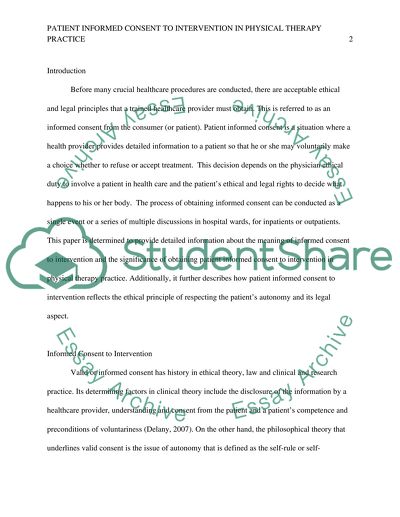Cite this document
(“The importance of obtaining patient informed consent to intervention Essay”, n.d.)
Retrieved from https://studentshare.org/health-sciences-medicine/1655054-the-importance-of-obtaining-patient-informed-consent-to-intervention-in-physical-therapy-practice
Retrieved from https://studentshare.org/health-sciences-medicine/1655054-the-importance-of-obtaining-patient-informed-consent-to-intervention-in-physical-therapy-practice
(The Importance of Obtaining Patient Informed Consent to Intervention Essay)
https://studentshare.org/health-sciences-medicine/1655054-the-importance-of-obtaining-patient-informed-consent-to-intervention-in-physical-therapy-practice.
https://studentshare.org/health-sciences-medicine/1655054-the-importance-of-obtaining-patient-informed-consent-to-intervention-in-physical-therapy-practice.
“The Importance of Obtaining Patient Informed Consent to Intervention Essay”, n.d. https://studentshare.org/health-sciences-medicine/1655054-the-importance-of-obtaining-patient-informed-consent-to-intervention-in-physical-therapy-practice.


